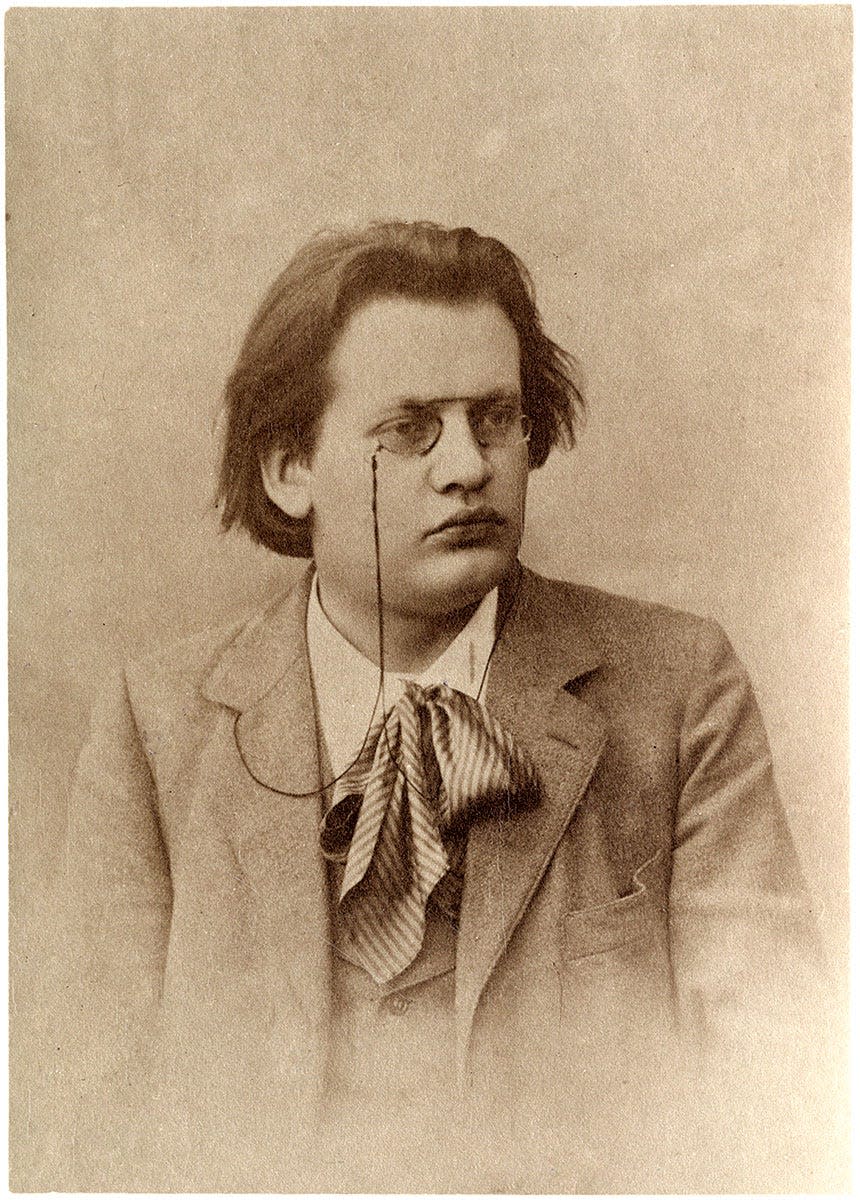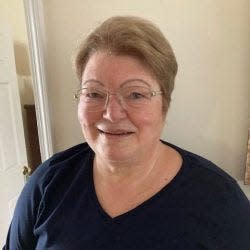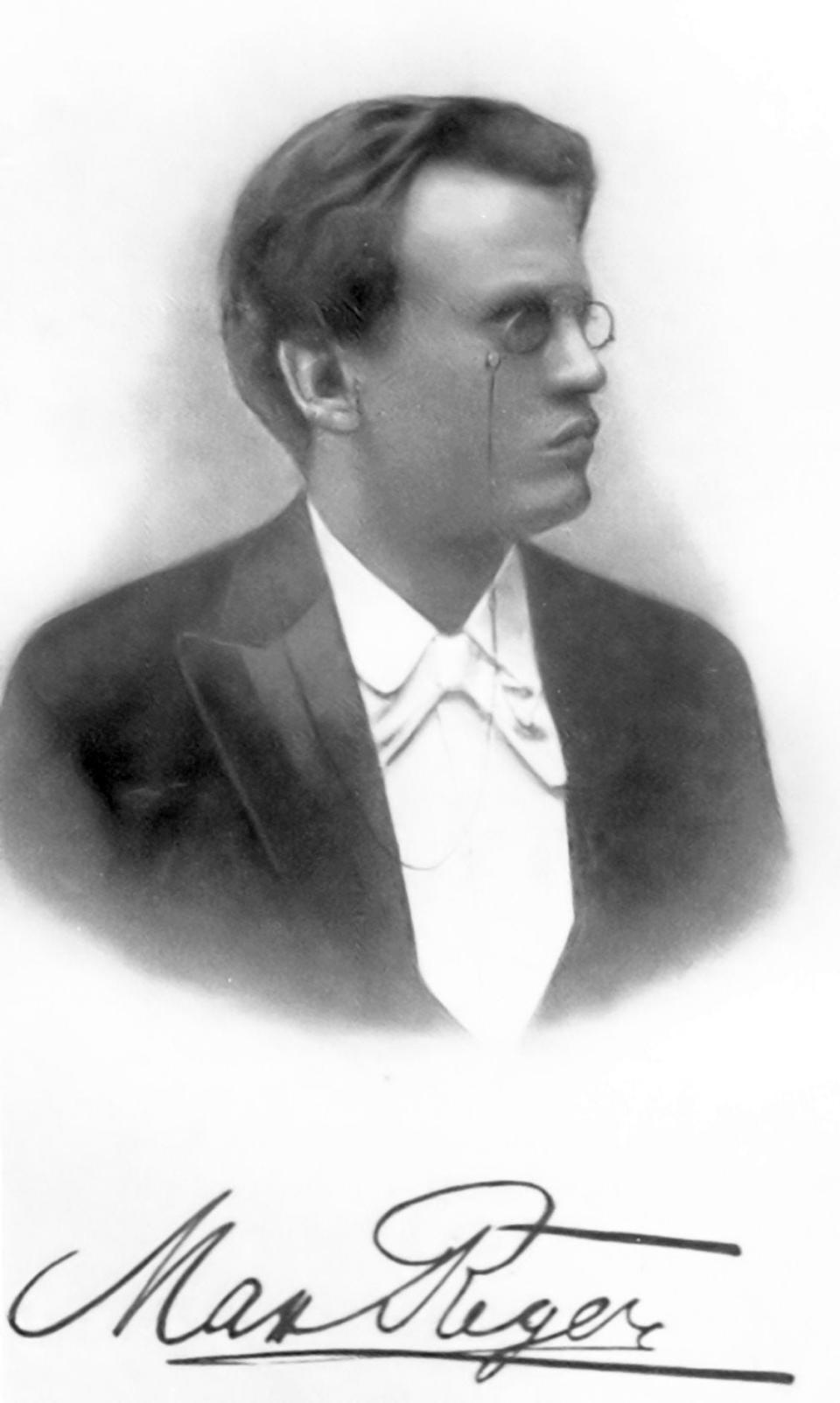Max Reger Festival 150 in Worcester celebrates German composer and pianist

- Oops!Something went wrong.Please try again later.
The Worcester Chapter of the American Guild of Organists will present the Max Reger Festival 150 from Nov. 3 to 5 to celebrate the 150th birthday of the German composer, pianist and organist credited with expanding the compositional language for the organ and leaving a profound portfolio of works for generations to come.
The festival will include three free concerts, lectures, and a tour/demonstration of the Hook Organ at Mechanics Hall. World class musicians and scholars will be taking part as well as outstanding local musicians, and the Worcester AGO is hoping the festival will also highlight Worcester's wealth of pipe organ instruments at the venues where the concerts and lectures are taking place such as All Saints Church, Wesley United Methodist Church, First Baptist Church of Worcester, and Pakachoag Church, Auburn.
Also, the festival may bring Max Reger himself into a more appreciated light in this country, where his achievements haven't received the general recognition that many scholars and musicians feel is deserved.
'A conservative and a visionary'
Reger's short but eventful life (1873-1916) was lived at a time of "unprecedented upheaval on very front," writes scholar, organist and festival participant Christopher Anderson in the program for the festival. "The sheer complexity and raw urgency of the period are palpable in his music to a degree perhaps unmatched at the time."
Reger has been described as "a conservative and a visionary, looking back to the traditional forms of the 18th century and forward to the harmonic adventures of the 20th. Raised a Catholic, he married a divorced Protestant and was excommunicated. Subject to bouts of depression, Reger was also known for his appetites. He toured and conducted extensively in Germany and Europe, and died of a heart attack at the age of 43.
"If you love the music of the late 19th century and German music, Reger has the greatest output of German music since Bach," said Marjorie Ness, co-artistic director of Max Reger Festival 150 with her husband, William Ness. "It's thrilling. It's worth knowing and experiencing. There's a great variety for the discerning listener," she said.
But while Reger became a musician/composer at an early age much like Bach, Mozart, and Mendelssohn, he "never achieved the same status as a major composer that these other child prodigies did," Marjorie and William Ness write in the festival program. "He was well recognized in his homeland of Germany but did not gain the recognition he deserved in the United States," they write. "To understand Reger more fully is the goal of the festival."
'Somebody needs to do something'
Ness said in an interview that as far as she has been able to determine the Max Reger Festival 150 is the largest event of its kind in the United States this year commemorating the 150th anniversary of Reger's birth.
"It's the only thing we can find of this scope, so there's quite a bit of excitement. Worcester's a great place for organs. We're gonna do a great job of presenting the artists," she said. Marjorie and William Ness have both had distinguished careers as organists and educators in the Worcester area. Marjorie Ness is sub-dean of the Worcester AGO with responsibilities that include the chapter's programming.

She said about a year ago her husband noted that Reger's 150th birthday was coming up and said, "somebody needs to do something. I think we should do it in Worcester."
She took the idea of a festival to the Worcester AGO board and also applied for and received a Covid recovery grant which will help fund the three free recitals. "We've been working on it very hard," she said.
"It's unusual in that the concerts are free — how often does high quality classical music get offered free?" said Will Sherwood, well-known organist, former dean of the Worcester AGO, and festival program book editor and web site creator.
The festival lineup
The festival lineup of happenings is as follows. For more information visit www.worcesterago.org and/or www.reger150.org. There will be web-based “appendices” for program notes, historical info, bios — mobile device viewing during the concert, Sherwood said.
Carole Terry In Concert — Reger and the German Romantics. 7:30 p.m. Nov. 3, All Saints Church, 10 Irving St., Worcester. Pre-concert talk by Christopher Anderson at 6:45 p.m. Free.
Terry is professor of organ and harpsichord emerita at the University of Washington School of Music, Seattle. Her career as a renowned performer and teacher of the organ and harpsichord has taken her throughout the United States, Europe, and the Far East. In the Nov. 3 concert she will explore the German repertoire leading up to and including Reger, including works by Brahms, Schumann, Mendelssohn and Reger. "This program shows the influence of middle to late 19th century composers on Reger connecting him to the wider world of musical expression."
Reger Lectures. Christopher Anderson and Carole Terry. 9 a.m., 11 a.m. and 1:30 p.m., Nov. 4, Pakachoag Church, 203 Pakachoag St., Auburn. $50 (for all three lectures). Catered lunch, $25.
Christopher Anderson is associate professor of sacred music at Southern Methodist University, Dallas. At 9 a.m. he will give "Some Remarks on Max Reger’s Twelve Pieces op. 59." At 11 a.m. Terry will discuss "Max Reger’s Opus 67 Chorale Preludes: Compositional forms and liturgical use." At 1:30 p.m. Anderson will discuss "Allusion in the Music of Max Reger."
Reger Works for Organ and Instruments. 7:30 p.m., Wesley United Methodist Church, 114 Main St., Worcester. Free.
A tour of the vast capabilities of Reger’s compositional prowess, featuring: 12 Stücke Op. 59. Musicians featured include Kevin Neel, director of music and organist at All Saints Church; Stanley Hanson, director of music at St. Stephen Lutheran Church in Marlborough; Jonathan Bezdegian, instructor of organ and campus minister for liturgical music and mission trips at Assumption University; Kristjon Imperio, pianist, organist and director of programs and community engagement at Pakachoag Music School of Greater Worcester; Bruce Hopkins, trumpet, Worcester Symphony Orchestra and Symphonic Brass; Arielle Cady Flores, violinist, South Lancaster Violin Studio; Michelle Graveline, professor emerita of music, Assumption University, and artistic director emerita, Salisbury Singers; Randy Steere, most recently assistant organist, Old South Church, Boston; Dan Moriarty, organist, teaches at Groton School.
Hook Organ Tour/Demonstration. Gather 12:45 p.m. Nov. 5 at front door, Mechanics Hall, 321 Main St., Worcester. Free.
Peter Sykes In Concert. Works of Max Reger. 4 p.m. Nov. 5, First Baptist Church of Worcester, 111 Park Ave., Worcester. Free.
Sykes is is a member of the organ department faculty at the University of Michigan, a core faculty member and principal instructor of harpsichord at the historical performance department of the Juilliard School in New York City, and works at Boston University, where he teaches both organ and harpsichord. He performs extensively in recital and has made ten solo recordings of organ and harpsichord repertoire. The program will include large-scale fantasias on German chorales by Reger late in his career.
"We're trying to appeal to the general public but also to the academics and musicians who want to learn something for the weekend," Marjorie Ness said.
'The breadth of Reger's music'
The first concert puts Reger in context and by the final concert his works will stand alone, she said. At the Nov. 4 concert with Worcester AGO members and other instrumentalists, "we're trying to show the breadth of Reger's music and hoping the community will be interested in seeing their members performing this type of work." The Mechanics Hall visit is an opportunity for visitors to see "the centerpiece organ in town."
Sherwood said that people who go to the concerts will be "experiencing phenomenal compositions that are rarely heard, requiring virtuoso technique. Reger brings the symphony to the organ in style and scope of composition."
However, Ness acknowledged that "there are organists who are not familiar with his (Reger's) work."

They included Ness herself until she was studying for her masters degree. A professor told her "You must learn Reger," she recalled. It was the beginning of a great discovery. "I found it just incredibly compelling," she said.
"I don't know why the United States shunned his music after his death, but certainly Europe embraced it," Ness said.
Possible explanations include that unlike the Austrian composer Arthur Schoenberg, who acknowledged Reger as an influence, Reger never came to the United States. Furthermore, he died at a young age in Europe during World War 1.
"If he had lived longer I think we would be embraced differently," Ness said.
'Now I know the name'
Max Reger Festival 150 hopes to draw about "1,000 people before we're done," Ness said.
"We really don't know who's going to the recitals ... I would be pleased if it was 200 to 250 (at each concert)," she said. She expects about 250 people to attend the lecture program.
The Boston Chapter AGO has been supportive of the festival, as have other chapters in the region, Ness said.
She also hopes that young people who have taken part in Worcester AGO programs will attend.
"I was pretty firm that I wanted it at no cost for a recital," she said.
Ness said she's been asked why should people go to Max Reger Festival 150.
"They'll learn a new word, Reger. They'll learn a new sound. I hope they go away, 'Now I know the name,' and also (they've been) exposed to the different pipe organs," she said.
Ness added that she also tells people, "Trust me, you're gonna enjoy it."
This article originally appeared on Telegram & Gazette: Max Reger Festival 150 brings musicians and scholars to Worcester

